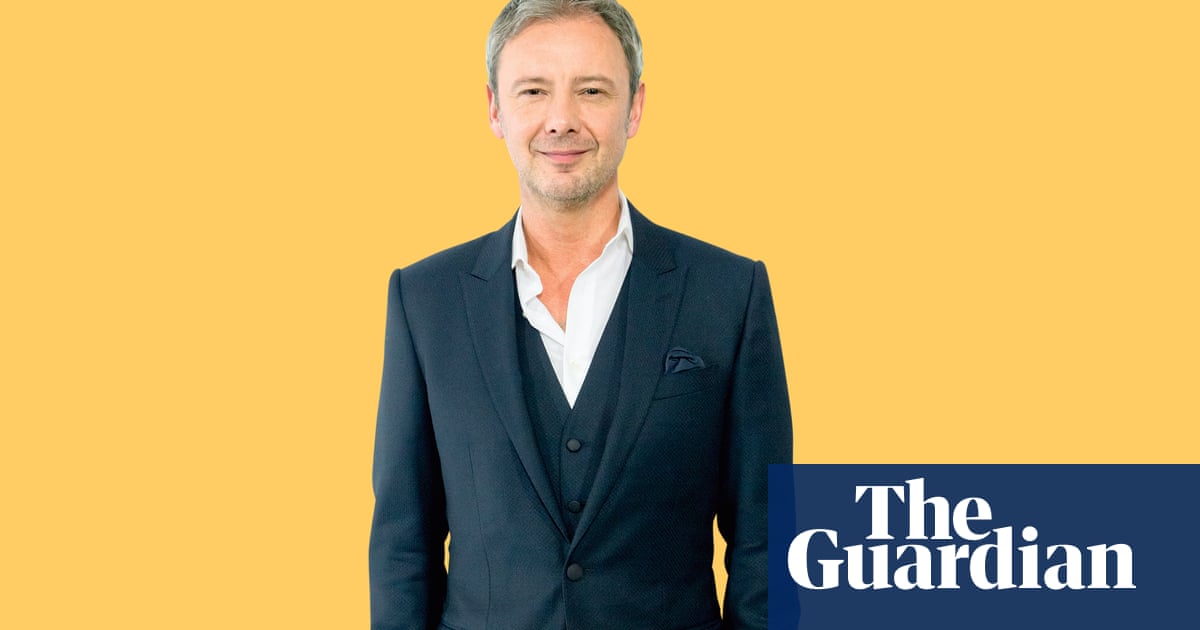
‘The best preparation I’ve had is eight previous presidential campaigns and all the mid-term elections in between’
‘Our entire team works incredibly hard to build trust for these moments; we take the responsibility that comes with that trust seriously’
RIYADH: CNN’s chief national correspondent and anchor, John King, was always well known but his coverage of the 2020 US presidential election – and his Magic Wall – reignited the interest of many viewers.
With two to three hours of sleep a night and 32 years of experiences, King was well-prepared to handle the election coverage in what has been an “upside-down” year.
Arab News spoke to him about the election week and how he foresees media relations with the new American President-elect Joe Biden.
We are coming to the end of a unique and unprecedented campaign. What has been your abiding impression of it, especially the week spent on air?
The most important impression is how unprecedented it was, because of the coronavirus disease (COVID-19) pandemic and the intensity of voter interest, and because of the giant changes that will come as a result.
The week spent on air was an adventure, exhausting at times, but also exhilarating and consequential. Joe Biden flipped five states and a congressional district from the (US President Donald) Trump 2016 map and defeated an incumbent US president for the first time in 28 years.
That is a dramatic event, and that it took five or six long days to know for sure somehow seemed fitting in this upside-down 2020.
You spent so many hours explaining, county by county, state by state, how the election was going to play out. How much preparation time did it take?
Most of my time at the Magic Wall is both tracing the current election and retracing the last 32 years of my life.
The best preparation I’ve had is eight previous presidential campaigns and all the mid-term elections in between.
And then you have to study polling and economic and demographic trends to keep in mind that many places on the map are changing – some are growing – in population and diversity. Some are struggling, because of automation or globalization and now the COVID-19 pandemic.
In the space of a few hours, you became something of a sensation for viewers and commentators around the world, with so many remarking on your mastery of the Magic Wall. Were you aware of this during the last week and what do you make of it?
After the first long night – about 3:30 a.m. Wednesday – I had something to drink and was sending and responding to emails before getting a couple of hours of sleep. From texts and a quick look at Twitter, I could see the interest was off the charts, and that the Magic Wall had become a part of the conversation.
It is flattering and kind, and I am gratified if my work helps people along the journey. But I also think most of it stems from the high interest and intensity – even anxiety for some – about the stakes of this election.
Our entire team works incredibly hard to build trust for these moments; we take the responsibility that comes with that trust seriously. I am fortunate to have a great tool that helps me see what is happening and use its data to take viewers through the history and context.
When you were not on air, what did you typically do during CNN’s election coverage? Did you go home to sleep? Could you sleep or were you still working?
When I was not on air, I was in the between-air blur: Drive home, unwind a bit while sending out some reporting emails, sleep a bit, then wake, coffee, shave, coffee, dress, coffee, drive to work and repeat. It was a several-day adventure.
I can never sleep right away, it takes an hour or so for the adrenaline to come down, but that is a good window to make sure I didn’t miss anything and gives me an opportunity to send out a few questions to sources in the campaigns/key states ... then sleep for two or three hours and start again.
Now that Donald Trump will no longer be president, after four years of stormy relations between the media and the White House, do you think the relationship of trust between the media and certain sections of the public can be restored?
There is no doubt that the Biden team views the relationship differently, and as part of the sometimes-adversarial give and take of democracy. So, there will be some ‘normal,’ maybe.
But every administration is different. President-elect Biden personally values the history and the media role, and that is important. Rebuilding broader trust across a polarized America is a very different question, and a longer-term crisis and challenge.
President Trump is not going anywhere. Trump-friendly media organizations have a choice to make at this moment, and so I see a less-polarizing president ahead, but that does not automatically mean a less-polarizing media climate or a more bipartisan consensus in society.
There have been a lot of unfounded rumors and false reports circulating about the election. What do you think needs to be done to stop people consuming and believing these reports?
This is a giant challenge of our times, and it is enormously complicated. The major social media platforms vowed to be better; the results are mixed.
It is challenging when a president is among those pushing conspiracies and things that are plainly not true. Media organizations are wise in this age to invest as much as possible in fact-checking, and to do so as calmly and clearly as possible.
Mainstream media needs to acknowledge the seeds of doubt and distrust and address them straight-on without getting defensive. Show the truth, and back it up with facts and more facts. Engage the skeptics – their phone is a supercomputer – and ask them to take on some responsibility in this challenge and let them have a voice to raise questions, as long as politely so.
None of this is new, but technology and social media and politicians with a large following can magnify rumors and falsehoods like never before. The best brands in journalism should defend facts with calm and vigor.











